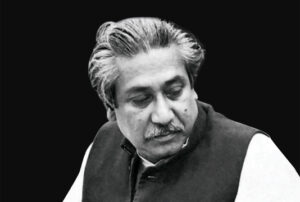There is no scope for the health authorities to have a respite and allow important vulnerable groups of people carrying the risk of community spread of the coronavirus pandemic go and beyond its grips. The case in point is the Tablig Jamaat Bangladesh which advised its members to go back home from the ‘chillas’ (forty days of religious practice) at mosques across Bangladesh. The advice followed the detection of coronavirus in four Tablig men in Singair Manikganj on the day before. Reports published in newspapers and the media showed Tablig Jamaat people at their Central Mosque at the Kakrail in the Ramna area of Dhaka City being pursued by members of the police to go back homes. That was a perfect police job.
But the health authorities should have gone two steps further. They should have considered the question of taking the Tablig men not only from their central mosque at Kakrail but also from other mosques where they were still performing ‘chillas’ to quarantine centres for 14 days with a view to making sure that none of them on going back home infected their family members quite unawares.
That they have been advised to go back to their homes, and many of them followed the advice, without health check or quarantine gives responsible quarters serious discomfort because none can rule out the presence of coronavirus carriers like their three members detected in Singair, Manikganj.
Hundreds of thousands of people perform chillas across the country throughout the year. And only the Tablig Bangladesh leaders are in a position to give an idea of how many groups were functioning on Tuesday when the advice was passed for them to go back homes.
Briefing journalists the other day the health authorities said they have spotted the spread of coronavirus to 15 out of 64 districts of the country and four clusters in Dhaka, Narayanganj, Madaripur and Gaibandha having 64, 23, 11 and 5 patients respectively. This was a great job done because the fight against the virus can be effective only if its exact concentrations are properly known.
But the spread of vulnerable groups from mosques to different directions at a crucial time from the point of view of the spread of the pandemic can alter the findings in no time and make the duration of the fight against the virus longer. The Chinese city of Wuhan took three months including 11 weeks of complete lockdown to make the fight crown with spectacular success. These efforts also prevented the virus from travelling out of Wuhan. On Wednesday Wuhan City dwellers were allowed to take up outbound trips.
The pandemic, without doubt, has strained the capacities of the health authorities. But this is an extraordinary time, and they should function by pooling together all their resources with extraordinary zeal through a division of labour so that such an important job does not remain unattended. They should now plan for keeping track of all vulnerable groups. Otherwise only forceful enforcement of lockdown will not serve the purpose it is intended for.




